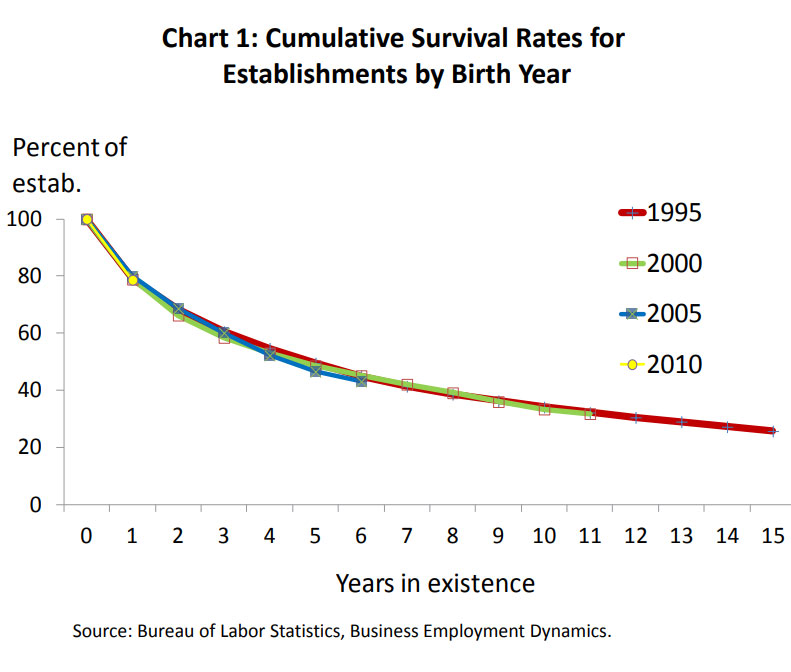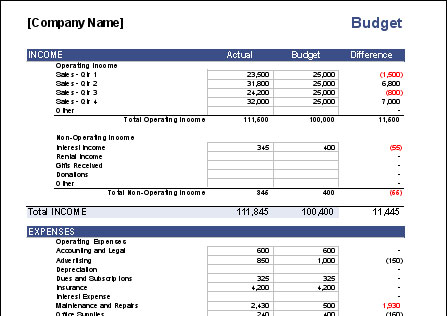Starting a business is a big step. If you are thinking about doing it yourself, you should know how to start a small business.
Small businesses are the most popular type of businesses at the moment and according to the Small Business Administration, they make up 99.7% of all businesses in the United States.
Unfortunately, not all of them are going to be successful. As a matter of fact, only two-thirds of them will survive at least two years. So how to start a small business that is positioned for success?

The early stages can make or break a business so it is important to go through all the right steps when turning your online business ideas into reality.
Table of contents
- The steps you need to take
- Tips and Tricks You Shouldn’t Overlook
- How to Start a Small Business without Money
- Small business ideas you could try
- The Startup Costs
- The Money You Need
How to start a small business: the steps you need to take
Without further ado, let’s take a look at 10 steps that will answer all the most important questions if you want to know how to start a small business!
Step 1: Start with the Research

Having a great business idea is important, but the idea alone does not guarantee you a successful business. A good validation process will help you balance the idea with the reality and choose the right approach for starting a small business.
It’s all about understanding the market because you will only hardly sell something that the market doesn’t want or need.
For that reason, it all starts with quality research that will help you identify focus groups and explore the market to determine whether or not your idea has the potential to turn into a successful online business.
You need to ask yourself some questions before you start a business. Here are some of the most important ones:
- Is there a need on the market for your product or service?
- What are your focus groups? Who are the people in need of your product/service?
- Are there other companies on the market with a similar product/service?
- What do you know about your competition?
- How will your business fit into the market?
Step 2: Create a Business Plan
Once you know how your product/service will fit into the market, you need to create a solid business plan – and follow it all the way through.
There are 2 main types of plans that will be your business guide through the process of starting a successful company.
- A traditional business plan is a great option for those who plan to seek financial support from investors or financial institutions. It is usually long and thorough because the investors or bank require as much information as possible before providing the necessary funds.
- A simple one-page business plan is all you need if you don’t need financial aid from investors or banks. It serves the purpose of giving you some clarity about your goals and the ways of achieving them.
Also, from the very beginning, you can have a pay stub generator for your workers to ease the process of invoicing and documentation. For example, the CVS Pay Stub shows how structured paystubs work in practice and how they can help keep financial records clean from the start.
Step 3: Set a Budget
If you want to start your own business, you need to be ready to invest some money. Set a budget and plan your finances to be able to cover both the initial investment and the ongoing expenses.

Download this XLS budget template
When calculating the initial costs, don’t forget to include things such as licenses and permits, legal fees, inventory and equipment, property leases, branding, insurance, and similar.
The second step is to anticipate how much money you will need to keep your business running before you start turning a profit. Put on paper how much it would cost you to pay for 12 months’ worth of rent, salaries, utilities, marketing, supplies, production, etc.
Once you combine those two numbers (the initial investment + the ongoing costs), you will have a better idea about how much it will cost you to start a new business.
If your budget seems too low to cover all those expenses, keep in mind that there are many ways to fund your small business such as:
- Financing
- Small business loans
- Small business grants: In United States
- Angel investors: United States, Europe, Asia.
- Crowdfunding: Indiegogo, Kickstarter.
Another method to start up a business is by bootstrapping, which means using as little capital as possible. You could also raise funds by partially selling your online business.
Whichever way you decide to go, you need to know and understand all your options and plan your finances accordingly.
Additionally, managing your financial documents, particularly bank statements, plays a crucial part in the early stages of business. For invaluable “tips on bank statement handling,” understanding its implications can help avoid common financial pitfalls.
Step 4: Pick the Right Business Structure
How to start a small business? You can choose from several business structures; a sole proprietorship, a partnership, a limited liability company (LLC) or a corporation.
Choosing the right business entity is important because it will impact everything from your business name to your liability. It will also determine how you file your taxes.
For instance, LLC offers liability protection and tax benefits to its owners while allowing them to manage the company and share the profits. There are different laws and regulations for different locations that you should be aware of. For example if you want to register your business as an LLC in Texas, you can research online about how to start an LLC in Texas before applying it for further process.
Luckily, if you are not happy with the initial choice, you can change your business structure to one that will better fit your needs.
If you want to be 100% sure you understand all the business structures and the way they impact your business, you should consider consulting an attorney or CPA.
Step 5: Choose Your Business Name

Choosing a good name is an important part of creating an internet business. You should choose your business name carefully and make it a memorable one.
Here are a few business name generators to help you out:
- Anadea Business Name Generator
- Wordlab Business Name Generator
- Shopify Business Name Generator
- Business Name Generator (BNG)
- Namesmith
- NameStation
- Naming.net
- Dot-O-Mator Name Generator
- NameMesh
Once you know which name you want to use, you should if it’s already in use. If it’s not, you should register it with the state or county clerk if you are a sole proprietor. The corporations, limited partnerships, and LLCs will register the name once the formation paperwork is filed.
You should also register your domain name as soon as you have chosen your business name. Once you have selected your business name. If your ideal domain name is taken, there are some cool options you should consider going with instead.
Step 6: Licenses and Permits
If you still don’t know exactly how to start a small business, you have to be ready to deal with some paperwork from day 1.
You will need all sorts of small business licenses and permits depending on the type of business you are starting as well as on your location. You should do thorough research to make sure you aren’t forgetting anything. Consulting a lawyer is also a good idea.
Step 7: Choose Your Accounting System
How to start a small business? Choosing a good accounting system will help your business run smoothly and save you a lot of time and unnecessary stress.
You can simply hire an accountant and let them do all the heavy lifting for you or you can set up an accounting system yourself. If, however, you decided not to hire a professional, we definitely recommend choosing accounting software.
Step 8: Choose a Business Location
One of the first things you will have to do is set up your business location. You can choose from many options, so make sure you are choosing smartly. After all, your business location needs to be appropriate for the type of business you are starting.
You can have a home office, a shared or private office space, or a retail location. There is also a chance you will have to buy or lease your commercial space.
Step 9: Prepare Your Team
One of the most important things you should think about when planning how to start a small business is hiring employees. It is never too early to start forming and preparing your team for work.
You should be clear on which positions you need to fill and what responsibilities come with each position. If you aren’t sure how exactly to do that, you should check out a guide to hiring your first employee created by The Small Business Administration.
If, on the other hand, you are outsourcing work to independent contractors instead of hiring employees, you will need an independent contractor agreement (.docx offered by Berkeley Law) in place before starting your search.
If you need neither the employees nor the contractors because you are a solopreneur, you still need to consider having at least some sort of support. It can be anybody from your family to a business coach but it is always good to have someone when you find yourself in a need of advice or some additional motivation.
Step 10: Marketing and Promotion
Starting a new business is just the first step. From that point on, you will have to think about all the ways to keep your company running.
One of the first things you should do when planning how to start a small business is to put together a unique selling proposition (USP) and creating a marketing plan. Exploring other small business marketing ideas is also a good idea because it will help you create the best marketing strategy for your small business.
How to Start a Small Business: Tips and Tricks You Shouldn’t Overlook
![]()
It will take some time for you to figure out all the aspects of your business and to learn how to do business right. However, if you make good decisions early on, it will save you a lot of trouble later.
Here are some useful tips to help you with planning how to start a small business:
Don’t Be Afraid of Failing
If you want to start a business, you have every right to be cautious. After all, being your own boss and creating a business from scratch comes with all kinds of risks. However, that is not a reason to give up even before you have started.
People are often afraid of failing so they make all kinds of excuses not to take the leap of faith and start their own business. So first things first: Confront your fears and stop will all the excuses.
If you fear the possibility your business might be a fail, you should try to think about it rationally and turn those things into something useful. Think about it as constructive criticism that comes directly from your subconscious mind.
Instead of giving up, address the issues that you think might prevent your business from succeeding, and don’t let your own insecurities hold you back.
Listen to Advice
Good advice can come from the most unexpected places so make sure to absorb everything. Be like a sponge, write things down, and develop a detailed plan.
Talk about your business with your family, friends, experts, and listen to what they have to say. Read their body language to determine whether they are being honest or they are just trying to be nice.
And above all, listen to your gut. Your intuition is your friend so address your concerns and talk about them to other people.
Don’t forget to seek advice from people with years of experience in the business. Not only will they give you some useful tips and tricks but you can also learn from the mistakes they made when they were in the position you are in now.
Be a Solution
“I want to start my own business but I am not sure it will be successful. What can I do?” – this is one of the most common questions people ask themselves when opening a new business. What you should be asking yourself instead is: “What will my business SOLVE?”
Your business idea is a good idea if it offers a new solution for your potential customers. If it fills a hole in the market and fixes a problem people encounter, you can be sure you will gain a solid customer base.
Just remember the guy who invented the cardboard coffee cup sleeve.

Back in the ‘90s, Jay Sorensen got tired of hot coffee burning his fingers every time he bought a cup of coffee to go so he designed a simple yet effective solution that got him rich instantly. He designed a humble cardboard sleeve that is today commonly used on coffee cups around the globe.
His idea was good not only because it was smart and innovative but because it was a solution to an everyday problem millions of people faced every day.
So much as Jay Sorenson did back then, you should ask yourself whether or not your idea solves a problem. If it does, you are on the right track.
Keep Things Simple
If you have a good business idea, don’t get all caught up in thousands of ways to improve it even more because you will end up with something way too expensive that nobody actually wants.
Overthinking is not your friend so just try to start small and stay focused on the basics. Learn how to test your business idea and cut all the unnecessary features and expenses. Start small and allow things to grow spontaneously.
Count the Expenses
Once you have a good business idea, you need to be sure you have the necessary budget. Count in every business expense necessary to start a new business. The first expenses you need to take into account are basic things such as rent, marketing, supplies, and similar.
Once you have a rough number in mind – quadruple it! You will be faced with unexpected costs of running a business more often than you think. It is better to be safe than sorry so don’t let the expenses catch you off guard.
Also, don’t forget to take your personal expenses into the account. You will have to pay for your rent, food, healthcare, gas, and other day-to-day things. Set up a list of priorities and divide your money accordingly. For example, paying your mortgage is a priority while taking a weekend trip out of town isn’t a must if your budget can’t really cover it.
Once you have calculated all of the possible expenses, to create a business budget. There is a chance you will need a small business loan or another source of outside capital before turning a profit and being able to pay for everything yourself.
How to Start a Small Business without Money
You need to be well aware of the fact that some time will have to pass before you start turning a profit. When calculating your costs, imagine that you are starting a business with no money at all.
You need to be able to handle having no incoming money if you want your business to make it in the long haul. After all, more than 50% of the new small business go bankrupt within the first 5 years.
A good way to avoid that happening is to have a solid backup plan. Having a temp job somewhere or sharing an apartment with roommates is a good way to save some money. You need to be ready to give up some of the comforts you are used to having. It will definitely pay off later on.
When planning on how to start a small business, take a good look at your income and your savings. Can you afford to start a business and quit your current job? Will you be able to cover unexpected costs if they occur? You need to be prepared for every possible situation.
Earn Money as You Move Forward
You might already know how to start a small business, but getting it going and earning money will be a long process.
You can’t achieve all at once; instead, grow your business in stages. Be prepared to work even during your off-hours during the first couple of hours. As you start earning money, you will be able to work less and employ more people to do the work for you.
Get Familiar with all Legal Requirements
The most boring yet unavoidable part of starting an online business is getting familiar with all the laws and legal requirements. However, if you want to avoid penalties, you will have to do so.
Everything must be done in accordance with your state’s laws; from setting up an accounting system to registering your business and employing people. One of the crucial points of planning how to start a small business is getting familiar with the tax liabilities and making sure you are following the rules with every move you make.
Getting professional legal advice from an attorney or an accountant is also a plus, especially in the beginning while you still aren’t sure how everything works.
Wisdom and Passion Hand in Hand
Listen to advice, do market research, talk to target customers, ask professionals for advice etc. Remember that knowledge is power and the more you know, the better chance your business will grow.
Let your passion push you forward but use your wisdom to move you in the right direction.
Small business ideas you could try
Ok, so you’re lacking ideas for creating a new business. Check out these small business ideas and see what is more appropriate for you.
- Arts & crafts business
- Creativity consultant
- Interior designer
- Jewelry
- Freelancing your expertise
- Hobby business
- Sports business
- Cart/kiosk
- Direct sales
- eBay
- Gift basket
- Swap meet sales
- Bookkeeping
- Business support
- Consulting
- Desktop publishing
- Invoicing
- Manufacturer’s rep
- Medical claims
- Payments
- Security specialist
- Seminar production
- Transcription service
- Virtual assistant business
- Child-care
- Elder Care
- Financial Advisor
- Personal concierge
- Personal shopper
- Remodeling contractor
- Tutoring service
- Wedding consultant
- Cleaning Event planning
- Mobile photography
Here’s an article with small business ideas for men. Those are not exclusive to male entrepreneurs, though.
The Startup Costs
“I want to start a small business. What are the costs?” – This is a very legit question that every new entrepreneur should ask themselves. One should never underestimate the expenses of owning a business. Let’s take a look at some basic costs:
- Startup costs: Before your business gets going, there will be a number of startup costs. Those including things such as legal work, marketing materials (brochures and similar), logo design, website design, etc. To cut your costs you can check these free HTML5 templates.
- Startup assets: Startup assets include the money with which the company starts operating as well as the inventory, equipment, machinery, office furniture, and similar.
- Startup financing: This includes capital investment and loans. However, it doesn’t include the money your company earns later on. Startup financing is the money you have before the business starts operating and turning a profit. The rest goes into the Cash Flow table, which will automatically adjust the Balance Sheet.
Assets vs Expenses – It’s all about Timing
![]()
If you want to understand the difference between startup expenses, assets, and financing and the rest of the costs that will occur down the road, you need to know it is all about the timing.
For example, the expenses that occur during the first year are not actually startup expenses. Instead, they appear in the Profit and Loss statement. Don’t count them twice; both in the startup expenses and profit and loss.
The same thing goes for the assets. If you acquire them before the starting date, they are considered startup assets. If, on the other hand, you purchase them later, you should put them in Profit and Loss.
Types of Startup Funding
- Investment is the money you put into the new business. It ends up as Paid-in Capital in the Balance Sheet. Basically, what you do is you invest a certain amount of money into starting a business with the risk of losing it but also with the hope to make more money down the road.
- Accounts payable are debts that will end up as Accounts Payable in the Balance Sheet. This usually refers to credit card debt. This number becomes the starting balance of your Balance Sheet.
- Current borrowing is standard debt, for example, bank loans, money borrowed from a Small Business Administration, or another current borrowing.
- Other current liabilities are borrowings from friends, family members, or founders, as well as interest-free loans
- Long-term liabilities are long-term debts and long-term loans.
Cash Balance on Start
Cash balance on starting date should cover the estimated amount of money your new business needs when it starts.
When planning how to start a small business, you should calculate your investments and loans minus the expenses and assets. If the cash balance goes below zero, you will have to reduce the expenses or increase your financing.
Secured loans can provide a practical solution for increasing financing, as they typically offer larger amounts and more favorable terms due to the collateral involved. By leveraging assets as security, businesses can access the necessary funds to maintain a positive cash balance and support initial operational needs.
How to set up a Business: The Money You Need
![]()
We have talked about counting expenses and getting a general idea about how much money you actually need to start a business. However, you might still not be quite sure exactly how much it will cost you to create a company. Here are some more things to keep in mind when you are planning how to start a small business:
Capital Expenditures
You can save a lot of money by finding reliable suppliers. Your startup can really benefit from vendors who have worked with companies similar to yours in the past. Find a supplier who is willing to help you by taking the time to get familiar with your business and offering exactly what you need.
Winding resellers can really help you save money on some of the equipment that you can purchase used, for example, furniture, machinery, and similar. Think about the things you need to purchase and then form a list of equipment that can be bought from a reseller as well as the equipment you would prefer to have fresh from the factory.
Operating Expenses
When planning how to start a small business, always be prepared for the worst-case scenario. There is a chance your sales will go much better than expected which would, of course, be a big plus. However, there is also a chance you will earn less money than planned – and you need to have a backup plan in case that happens.
Have a number in mind that will keep your business going during the time you build your brand recognition. Document it all, but every possible expense on paper, and make sure you can cover every single one of them.
Talk to the experienced business owner to get a better idea of all the operating expenses. People usually like to share their experience and offer advice and you can only benefit from that so don’t be shy when asking questions.
If you don’t know who to talk to, check out SCORE to find a suitable mentor in your field.
Professional Help
As soon as you start your business, you will have to think about which professional service to hire. From janitors to bookkeepers and marketing managers, you can’t do it all alone. Of course, in the beginning, you will want to save as much money as possible but as your business grows, you won’t be able to do everything on your own.
Professional help is an additional expense to keep in mind and you have to really think about which experts you need to hire and which aren’t all that necessary. However, don’t get fooled by the momentary costs.
For example, doing all of the bookings for your online business by yourself might save you some money, but will the results be equally as effective as with a professional. For these purposes, you can consider Amelia, the best appointment scheduling plugin for WordPress.
Make sure that saving money on the start won’t end up costing you even more in the long haul.
Personal Finances
Your personal finances will affect your business as well. When you are a business owner, you need to think about all the money that goes through your hands. In the beginning, you might decide to forgo paying yourself.
However, you need to know what your monthly personal expenses are. From paying for food and rent to all the little things such as school tuition, you need to have a clear idea about how much money you are spending.
Will you be able to cover all your expenses with your new business or do you think you should keep another job until the business starts turning a profit? – Questions like that need to be answered in time when you are planning how to start a small business.
You might want to set aside as much money as possible just in case. You can never be 100% sure how fast or slowly your business will grow and start earning money
Stay Persistent
Not every business idea is a success and that is a fact that you have to be aware of. However, if it happens that your new small business needs to be shut down, don’t lose all hope and give up entirely from investing in your ideas.
On the other hand, if you create a solid financial plan, even in the case that your new company turns out to be a bust, you will be able to recover financially and try a new thing as soon as you have a new idea.
One unsuccessful try isn’t a reason to give up entirely. It only means learning from your mistakes and trying even harder the next time.
FAQs about how to start a small business
1. What is the process for registering a small business and obtaining the necessary licenses and permits?
Depending on the business’s industry and location, there may be different procedures for registering a small business and acquiring the required licenses and permissions. Generally speaking, you must select a business name, apply for a tax ID number, and get the essential local, state, and federal licenses and permits. Before beginning, it is crucial to learn and comprehend the precise needs of your company.
2. How do I develop a solid business plan and assess my target market and competition?
Setting goals, comprehending your target market and competitors, describing your goods or services, and developing a financial strategy are all essential components of a strong business plan. Researching your sector and comprehending the wants and preferences of your clients is necessary for evaluating your target market and competitors. You may use this knowledge to develop a special value proposition that sets your company apart from rivals.
3. What are some funding options for small businesses and how do I determine which one is right for me?
Small firms have access to loans, grants, crowdsourcing, and venture capital as funding sources. The best choice for you will depend on how well your financial situation, credit history, and ability to pay back the loan are evaluated. Before choosing a choice, it is crucial to do some research, evaluate the many possibilities, and weigh the advantages and disadvantages of each.
4. How do I choose a legal structure for my business, such as sole proprietorship, LLC, or corporation
Considerations for your company’s legal structure include liability protection, taxation, and management structure. The least complicated option is a sole proprietorship, while an LLC offers some liability protection and a corporation offers the most security. Choosing the right course of action for your company can be aided by seeking legal or financial advice.
5. How do I establish a brand and create a marketing strategy to promote my small business?
Creating a distinctive name, logo, and messaging that define your company is part of establishing a brand. Choosing the best methods to reach your target audience, determining who they are, and producing content that appeals to them are all steps in developing a marketing plan. Small businesses frequently use channels like social media, email marketing, and SEO, but it’s crucial to adapt your plan to your particular industry and target market.
6. What are some common challenges faced by small business owners and how can I mitigate or overcome them?
Small business owners frequently struggle with managing their money, bringing in and keeping customers, and hiring the proper people. Making a sound financial plan, emphasizing customer service and employee retention, and putting in place a hiring strategy that attracts the best personnel are all necessary to address these difficulties.
7. How do I manage finances and keep accurate records for tax purposes?
Tracking income and expenses, making a budget, and controlling cash flow are all components of managing finances. Maintaining thorough financial records and becoming current on tax rules and regulations are essential components of keeping correct records for tax purposes. You may manage your funds and adhere to tax regulations by using accounting software and seeking financial advice.
8. How can I find and hire the right employees to help grow my small business?
Creating a job description that explains the duties and requirements in detail, advertising the position through a variety of media, and conducting extensive interviews are all necessary steps in finding and recruiting the proper workers. While making a recruiting selection, it is crucial to take into account aspects like cultural fit, abilities and experience, and work ethic.
9. What are some regulations and compliance requirements I need to be aware of when starting a small business?
Laws and compliance standards can change depending on the business’s sector and region. Environmental laws, employment rules, and zoning laws are a few examples of prevalent restrictions. It is critical to learn about, comprehend, and keep abreast of any changes to the rules and legislation that apply to your organization.
10. How can I leverage technology to streamline operations and improve efficiency in my small business?
Small businesses can increase efficiency and simplify operations in a variety of ways by utilizing technology. The use of a business management system can streamline processes, reduce costs, and improve team collaboration.Investing in cybersecurity measures might also assist in safeguarding your company against potential dangers. It’s critical to assess your unique business requirements and choose the best technological solutions to support your objectives. You can also make educated selections by asking the counsel of industry experts.
Ending thoughts on how to start a small business
So, how to start a small business? First of all, you need to be prepared to go with all the ups and downs that owning a business brings. However, if you start right, things will be much easier for you later on.
It is all about good preparation. Gather as much knowledge as possible, do all the necessary research, and calculate all the expenses. Be prepared for the worst-case scenario; gain momentum on the side before you decide to quit your job, save money wherever you can, and always ask for professional advice if you aren’t sure what to do next.
Most importantly, be persistent and don’t give up at the first sight of problems. It takes a lot of time and dedication to plan how to start a small business, get a new business running, and start turning a profit but it all pays off in the long run.
To assist with growing your business and taking off some of the strain from your shoulders, consider asking for professional help in the field of client management. For instance, Amelia can help you with handling the online booking process.
If you enjoyed reading this article on how to start a small business, you should check out this one on how to start a small business in Texas.
We also wrote about a few related subjects like 15 reasons why your small business needs a website, how to apply for a business license, small business management software, small business ideas for men, medical scheduling software, small business ideas for small towns, professional email address, best studio scheduling software, and contact management software.

